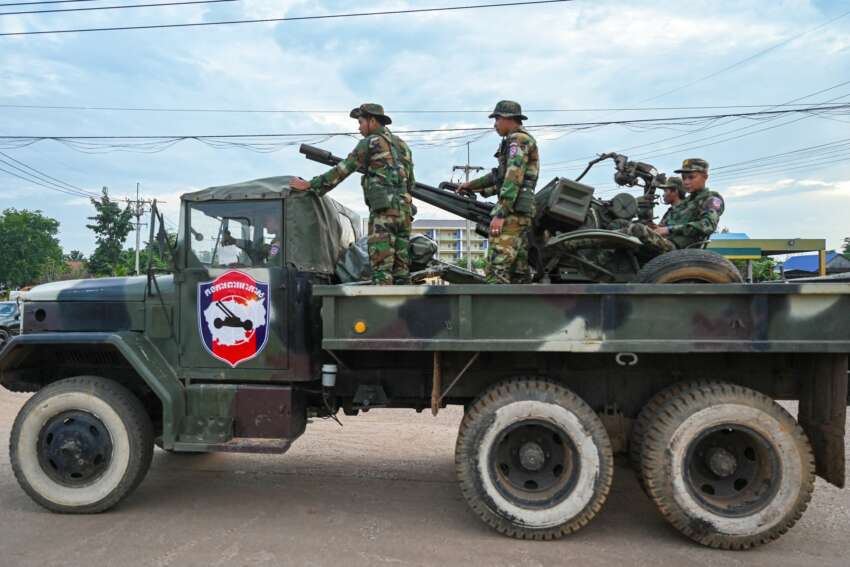
Cambodian soldiers stand on a military truck with an anti-aircraft gun in Oddar Meanchey province on July 25, 2025. Thailand and Cambodia fought their bloodiest military clashes in more than a decade on July 24, with at least 12 people killed as the two sides battled with tanks, artillery and ground forces over a disputed border zone. (Photo by TANG CHHIN Sothy / AFP)
The border conflict between Thailand and Cambodia has intensified for a second day, with Thai authorities confirming 15 casualties and the displacement of more than 100,000 Thai civilians. The fighting, which began yesterday morning around 8 AM, has escalated with Cambodian forces reportedly targeting civilian areas, leading to the closure of seven Thai hospitals. The Thai Interior Ministry has confirmed that over 300,000 people from four border provinces have been evacuated to nearly 300 temporary shelters.
The intense military engagement has resulted in significant casualties on both sides, with Cambodia reporting one civilian death and five injuries from Thai military strikes. The conflict has evolved into the most severe military confrontation between the two nations in over a decade, involving jet fighters, artillery, tanks, and ground forces from both sides. Regional nations including ASEAN members, Malaysia, Myanmar, China, and Singapore have urged both parties to seek a peaceful resolution to the conflict. The United Nations is preparing to convene an emergency Security Council meeting in response to the escalating situation.
The conflict stems from a long-standing dispute over the ownership of an ancient Hindu religious structure, which has been a source of tension between Thailand and Cambodia for centuries. The current escalation represents the most serious military engagement between the two countries in recent history. Additionally, nearly 3,000 Cambodian migrant workers in Thailand have returned to their home country through the Ban Laem border crossing due to security concerns.
The international community has expressed growing concern over the humanitarian impact of the conflict, with particular attention to the large-scale civilian displacement and the targeting of civilian areas. The situation has prompted regional security concerns and highlighted the need for immediate diplomatic intervention to prevent further escalation. The conflict has also disrupted cross-border trade and economic activities, adding to the humanitarian challenges faced by both nations.



